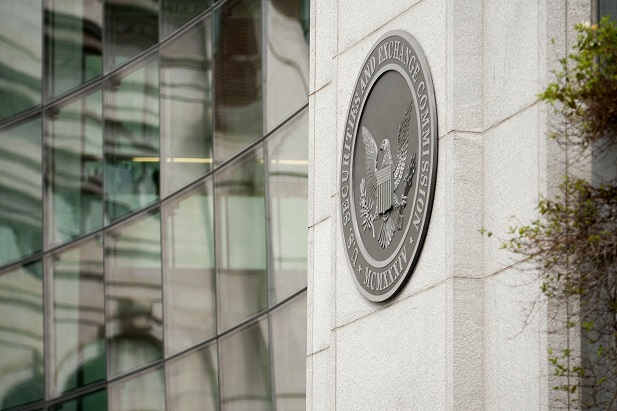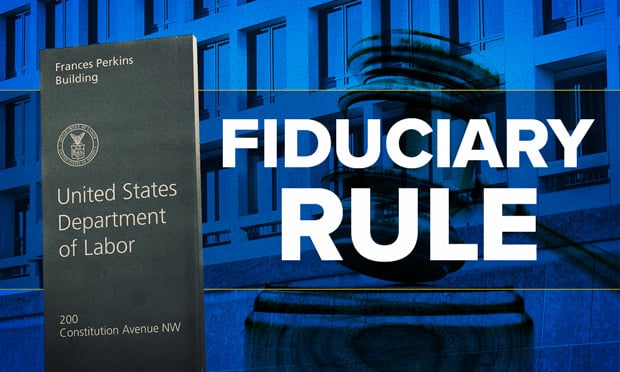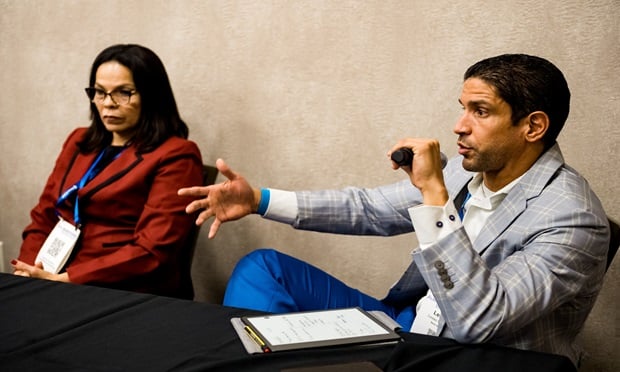 Future investigations may not falldirectly under the SEC's Share-Class Disclosure Initiative, butwill be an offspring of the initiative, according to James Lundy, apartner with Drinker, Biddle & Reath. (Photo: Diego M.Radzinschi/ALM)
Future investigations may not falldirectly under the SEC's Share-Class Disclosure Initiative, butwill be an offspring of the initiative, according to James Lundy, apartner with Drinker, Biddle & Reath. (Photo: Diego M.Radzinschi/ALM)
Financial advisors registered with the Securities and ExchangeCommission should expect continued scrutiny from regulators in thewake of a self-reporting initiative that brought 79 settlementswith advisors and returned more than $125 million to investors.
|Related: SEC settles with 79 RIAs under share-classdisclosure initiative
|The SEC's Share Class Selection Disclosure Initiative, launchedin early 2018, gave advisory firms four months to self-reportfailures to adequately disclose 12b-1 fees and recommendations ofhigher cost share classes when lower cost shares of the sameinvestments were available.
|In some cases, firms that did not self-disclose during the firstinitiative are already receiving document requests from theSEC.
|Future investigations may not fall directly under the SCSDinitiative, but will be an offspring of the initiative, accordingto James Lundy, a partner with Drinker, Biddle & Reath.
|“There's an expansive effort by the SEC's enforcement divisionpertaining to revenue sharing,” Lund said in a recent webinarhosted by the firm.
|“There will be more to come,” he said of the agency'sinvestigations of how RIAs are capturing 12b-1 fees, and whetherthey are fully disclosing all conflicts of interest on their FormADV. “The asset management unit that led this initiative has beenemboldened.”
|Attorneys for the firm advise revising ADV and other clientdisclosure forms to include specific language on all revenuearrangements with mutual fund companies or custodians that wouldqualify as a conflict of interest.
|“The more specificity, the better chance you have to avoidscrutiny,” said Fred Reish, also a partner in the firm. “Caution isa better approach.”
|The SEC is taking particular aim at the use of the word “may” inForm ADV filings—as in a specific investment “may” create aconflict of interest.
|One firm that settled with the SEC several years before the SCSDinitiative ultimately sued the agency. In 2015, anadministrative law judge ruled in favor of The Robare Group, sayingthe firm acted in good faith in constructing its disclosures,noting that it went so far as to hire a third-party compliancefirm.
|But the SEC appealed, and in 2016 the Commission overturned theadministrative law judge's ruling, and found the firm failed toadequately disclose material conflicts of interests, and willfullyomitted material facts from its Form ADV.
|Last January, the case was heard before the Court of Appeals forthe District of Columbia. During oral arguments, the three-judgepanel focused specifically on the firm's use of the word “may” inits Form ADV.
|A ruling is expected within the next months, and could have aconsiderable impact on how the SEC enforces disclosures, attorneysfor Drinker Biddle said.
|READ MORE:
|SEC: 'Scores' of RIAs investigated undershare-class disclosure initiative
||Complete your profile to continue reading and get FREE access to BenefitsPRO, part of your ALM digital membership.
Your access to unlimited BenefitsPRO content isn’t changing.
Once you are an ALM digital member, you’ll receive:
- Critical BenefitsPRO information including cutting edge post-reform success strategies, access to educational webcasts and videos, resources from industry leaders, and informative Newsletters.
- Exclusive discounts on ALM, BenefitsPRO magazine and BenefitsPRO.com events
- Access to other award-winning ALM websites including ThinkAdvisor.com and Law.com
Already have an account? Sign In
© 2024 ALM Global, LLC, All Rights Reserved. Request academic re-use from www.copyright.com. All other uses, submit a request to [email protected]. For more information visit Asset & Logo Licensing.








